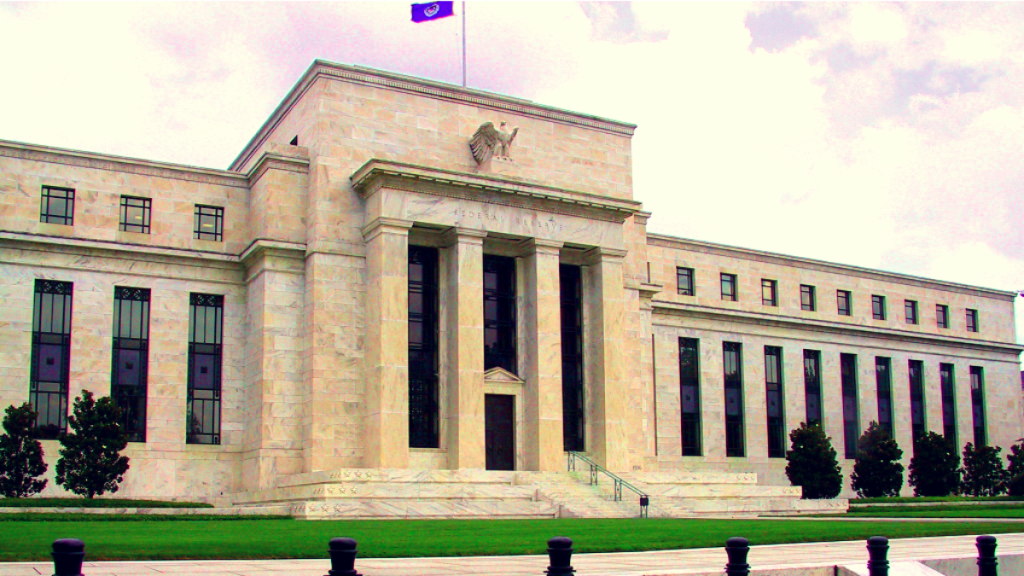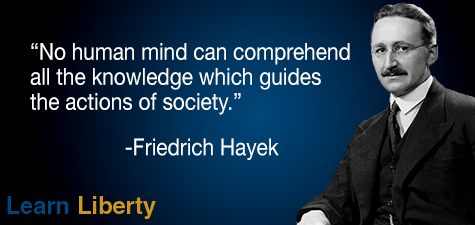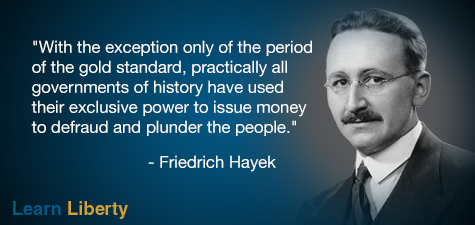Tag: hayek


Bitcoin Produces Prosperity, Not Climate Change
August 15, 2024 | Post
Despite claims of environmental harm, Bitcoin’s impact is minimal compared to its global benefits!

Why our liberty hinges on the Rule of Law
February 16, 2024 | Post
The Rule of Law plays a pivotal role in enhancing individuals’ freedoms, as it dictates whether a country veers toward authoritarianism or freedom. But what do we understand as the Rule of Law?

Tolerance means dealing with ideas without canceling or censoring
January 25, 2024 | Post
Society is always changing, and so are ideas.
One constant, however, is intolerance for different ideas. That intolerance has left its mark, often in blood, on human history. The current iteration of intolerance, though not quite bloody, is “cancel culture.”

How Students For Liberty will free the world — with a hand from F.A. Hayek
September 4, 2023 | Post
Imagine a world where the principles of classical liberalism are not just taught but lived by every individual. This vision is not just a dream, but a goal that Students For Liberty (SFL) is actively working towards – and you can be a crucial part of making it a reality.

The origins of libertarianism
August 3, 2023 | Post
Within the world of political spectrums, one ideology stands out for its axioms, principles, and ethics: libertarianism. It is a political philosophy based on the idea that the individual is the sole owner of oneself and therefore has the right to exercise their freedom without external interference, as long as it does not harm the freedom of others.

Five books to understand classical liberalism
July 6, 2023 | Post
Ready to dive into the captivating world of classical liberal literature but not sure where to start? We’ve got you covered! Whether you’re new to the world of classical liberalism or seeking to expand your knowledge, these five books are key to unlocking a deeper appreciation of its core tenets.

2022 is over and Soylent Green isn’t people
January 16, 2023 | Post
Soylent Green (1973), a dystopian sci-fi movie, depicts a world suffering from overpopulation, climate change, and extreme inequality, where the rich exploit and own the poor, who survive on the evil Soylent Corporation’s processed plankton. As 2022, the year in which Soylent Green was set, has now passed, the movie’s grim predictions of overpopulation have proven misguided.

A world unsafe for autocracy
October 26, 2022 | Post
It is clear that more prudent and proactive statecraft is needed; a doctrine that accepts that the sword cannot solve every problem and a retreat from world affairs will only leave space for uncertainty. Rather, the US should embrace the prospect of working alongside diverse partners to make the world more resilient to the forces that seek to undermine free societies.

Hayek Predicted Bitcoin
January 18, 2022 | Video
Here in Episode 4 of our series on Blockchain Economics, Lawrence H. White, Professor of Economics at George Mason University, will walk you through Hayek’s elegantly simple proposal: make private individuals and businesses free to offer their own money to compete with that of the government.

A rising stock market does not signal economic health
December 14, 2016 | Post
Profits and rising stock prices in a system of economic nationalism and cronyism reflect the satisfaction of the desires of those with political power.

Election 2016: politics when government becomes a weapon
November 4, 2016 | Post
As Hayek long argued, a free society is governed by general, abstract rules that are equally applicable to all persons, including government actors.

The best person to plan your next flight is you
October 24, 2016 | Post
There’s more to travel than the sticker price of different ways of getting from point A to point B.

Cash is not the enemy; central banks are
October 19, 2016 | Post
Are interest rates not prices? And if so, should they not be discovered instead of imposed?

The Cajun Navy at the Prow: How Civil Society Responds to Disaster
September 22, 2016 | Post
Because the Cajun Navy consists of local volunteers who operate “on the ground” (or above the ground, on the water), they have access to local knowledge that other entities do not. Economist F.A. Hayek’s claim that knowledge is both dispersed and specific to time and place requires that we consider how various institutional structures are able or unable to make use of knowledge.

Quote of the Day: Hayek on Knowledge
April 5, 2016 | Post
For more Hayekian insight into the extent and constraints of human knowledge be sure to read Hayek’s seminal work, “The Use of Knowledge in Society” (pdf).
The 2016 Election and the Folly of a Brilliant President
March 23, 2016 | Post
Professor Barry Brownstein has written an excellent piece for the Foundation for Economic Education, titled “The Last Thing We Need Is a Brilliant President.” He writes that in the midst of America’s current race for the White House, people are promoting the brilliance of their preferred candidates, arguing that the right leader will help get […]
The Wonder of Market-Set Prices
February 5, 2016 | Post
The following appeared on Professor Don Boudreaux’s blog Cafe Hayek on January 24th, 2016. The following is an excerpt. Be sure to head over to his blog to check out the whole piece packed full of economic wisdom. In The Road to Serfdom,* F.A. Hayek makes an elaborate and important point that is summarized nicely, I […]

Quote of the Day: Hayek on Money
December 22, 2015 | Post
F.A. Hayek was highly critical of central banking and of government’s proclaimed interest in holding a monopoly on the issuance of money. Hayek eventually turned his opinions on money and free banking into an economic treatise in the book “The Denationalization of Money“. Some even say Hayek predicted the emergence of Bitcoin nearly three decades […]

Trivia: Did you know this about Wikipedia founder Jimmy Wales?
December 10, 2015 | Post
Jimmy Wales, founder of Wikipedia, was influenced Friedrich Hayek’s essay, “The Use of Knowledge in Society” which argues that information is decentralized. You know it’s true, because it says so on Wikipedia, but if you’re looking for other sources, it’s corroborated by this New Yorker article, and Wales even went on EconTalk with Russ Roberts […]

Quote of the Day
November 17, 2015 | Post
For more from Hayek on what he and fellow Austrian economists referred to as the knowledge problem be sure to check out Hayek’s seminal essay, “The Use of Knowledge in Society.”

Richard Epstein: The Continuing Relevance of Hayek's "The Constitution of Liberty"
November 4, 2015 | Post
Richard A. Epstein is the inaugural Laurence A. Tisch Professor of Law and Director of the Classical Liberal Institute at the New York University School of Law. He is also the James Parker Hall Distinguished Service Professor of Law Emeritus and senior lecturer at the University of Chicago. He served as editor of the Journal […]

Quote of the Day: On Coercion and Equality
October 14, 2015 | Post
Today’s quote is brought to you by none other than F.A. Hayek from his book The Constitution of Liberty: “If one objects to the use of coercion in order to bring about a more even or more just distribution, this does not mean that one does not regard these as desirable. But if we wish […]

